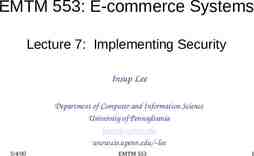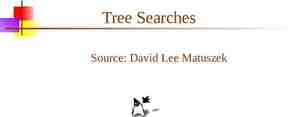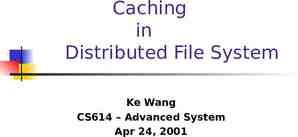ICILS 2013 International Computer and Information Literacy
13 Slides2.64 MB

ICILS 2013 International Computer and Information Literacy Study Educational Quality Assurance Agency CHILE

Index Organization of the study Field operations Main results for Chile Communication of the results

Organisation Educational Quality Assurance Agency National and International Assessment External service provider Public bidding procedure Comprehensive Quality Assessment Unit International Assessment Field operations, test administrators recruitment, storage National Questionnaires of Quality and Educational Context Confidentiality agreements Educational Quality Indicators (Selfesteem; Environment; Participation and Citizenship Education; Healthy Lifestyle) Penalties associated to participation rates

Field operations Invitation to schools – Call center (script, frequent questions, letters) – School Coordinator / School Collaboration Officer Two visits to each school, previous to the test – Accurate diagnosis of school computers – Motivation of students – Cover letters for School, ICT and Teacher questionnaires

Field operations Chilean Sample 174 schools 3,189 students International Sample 3,300 schools Preparation of USB sticks – Copy of the test on each USB stick – ID Labels for each USB stick (one per student) – Accurate revision of test functionalities Previous to the day of the test – Advice for test administrators and school coordinators (emails) 60,000 students

Main Results for Chile National Score Average (487) – Below international score average – Girls perform better than boys Socioeconomic status and CIL – 74-point difference between Quintiles 1 and 5 (less than one standard deviation) 513 Quintile 5 511 Quintile 4 487 Quintile 3 475 Quintile 2 439 Quintile 1 400 420 440 460 480 500 520

Main Results for Chile Geographic area – Urban schools achieve better results than rural schools Urban 493 Rural 400 436 420 440 460 480 500 Students are not achieving the higher abilities assessed by the test – Chilean students do not achieve highest level of CIL proficiency – 18% of Chilean students below level 1 of proficiency

Main Results for Chile Self perceptions – High levels of interest in ICT – High levels of self-confidence – CIL is developed out of school Thinking about your experience with computers: To what extent do you agree or disagree with the following statements? I think using a computer is fun. It is more fun to do my work using a computer than without a computer. I use a computer because I am very interested in the technology. Strongly agree 73,6 63,5 50,7 Agree 23,3 28,5 34,3 Disagree 2,6 6,7 12,7 Strongly disagree 0,5 1,2 2,2

Main Results for Chile Thinking about your experience with computers: To what extent do you agree or disagree with the following statements? I have always been good at working with computers. Girls Boys Strongly agree 45,6 52,8 Agree 43,3 35,6 Disagree 10,2 10,7 0,9 0,9 Strongly disagree

Main Results for Chile Use of computers in school – No correlation (or negative correlation) between use of computers in class and CIL performance – Students from lower socioeconomic groups use computers more frequently in school

Main Results for Chile - CIL is a useful skill for participation in various areas of life in society: home, school, work and community. - ICILS results indicate that required skills to perform the most complex tasks need to be developed. - Internationally, few students can demonstrate consistently the most complex skills described in the test. - - In Chile, 18 % of students have not consolidated the most basic skills described in ICILS Results of ICILS present a challenge with respect to encouraging students to develop skills in order to solve more complex tasks associated with managing information .

Communication Press conference Presence in written and audiovisual media

ICILS 2013 – Chilean experience [email protected] Educational Quality Assurance Agency Thanks for your attention






